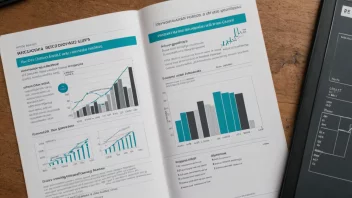Writing a successful research proposal is a crucial step for any academic or professional looking to secure funding or approval for their project. A well-structured proposal not only outlines the research question but also demonstrates its significance, methodology, and potential impact. Here are some essential tips to guide you in crafting a compelling research proposal.
First and foremost, start with a clear and concise research question. This question should be specific, measurable, and relevant to your field of study. Articulating a strong research question sets the foundation for your proposal and helps reviewers understand what you intend to explore.
Next, provide a solid rationale for your research. Explain why your question is important and what gap in existing knowledge your study aims to fill. You should highlight the significance of your research in terms of its potential contributions to the field, society, or industry. This section will help reviewers see the value in your proposal and why it deserves funding or support.
Moving on, outline your research methodology. This should include the approaches you plan to use for data collection and analysis. Clearly describe your methods, such as qualitative or quantitative research techniques, and justify your choices. Reviewers need to understand how you intend to conduct your research and why your selected methods are appropriate for answering your research question.
Additionally, include a timeline for your project. A well-defined timeline not only shows your planning skills but also sets expectations for when key milestones will be achieved. It helps reviewers assess the feasibility of your proposal and ensures that you have considered the practical aspects of your research.
Furthermore, consider discussing potential challenges and how you plan to address them. Acknowledging potential obstacles demonstrates foresight and preparedness, traits that are highly valued in research. Outline any ethical considerations and how you will handle them, as this will enhance the credibility of your proposal.
Finally, conclude with a strong summary that reinforces the importance of your research and your commitment to seeing it through. Reiterate how your study will contribute to the field and emphasize the expected outcomes. This final paragraph should leave a lasting impression on the reviewers and compel them to support your research.
In summary, writing a successful research proposal requires clarity, justification, and careful planning. By articulating a clear research question, highlighting its significance, detailing your methodology, and being prepared for challenges, you can create a compelling proposal that stands out. Remember, your proposal is not just a plan; it’s an opportunity to showcase your passion for research and your ability to contribute valuable insights to your field.






